Olive
How to submit an article:
- Registered users can submit any published journal article that has a unique DOI (Digital Object Identifier) name or link to Research Hub.
- For example, you can paste the full DOI link:
https://doi.org/10.1109/5.771073or just the DOI name:10.1109/5.771073into the field above and click submit. - The person who is first to submit a valid article to Research Hub will forever be credited for it, and every article submission earns you +6 Research Points.
Related Topics
Published research studies are articles that present the findings of original research that has undergone a peer-review process and has been made publicly available in scholarly journals, books or other media.

Effects of olive oil on hepatic steatosis and liver enzymes: A systematic review
2023 Oct Journal of Functional Foods Ma Y, Ding X, Gu J, Zhou S, Jiang Y
The systematic review concludes that olive oil, used for eating or cooking in randomized controlled trials, demonstrated significant reductions in hepatic steatosis grading through ultrasound and decreases in aspartate transaminase and alanine transaminase levels, suggesting promise in ameliorating hepatic steatosis. However, further investigations are needed to explore the potential effects of different olive oil types or olive polyphenols on chronic liver ailments.
Systematic Review Randomised Controlled Trial Obesity Liver Enzymes Olive Oil Fatty Liver Disease Type 2 Diabetes
Phytochemicals and Biological Activities of Burdock ( Arctium lappa L.) Extracts: A Review
2022 Nov Chemistry & Biodiversity de Souza ARC, de Oliveira TL, Fontana PD, Carneiro MC, Corazza ML, de Messias Reason IJ, et al.
Studies have demonstrated that A. lappa extracts have antioxidant, antimicrobial, antitumor, antidiabetic, anti-inflammatory, and have complement system modulation effects. Secondary metabolites, such as phenolic compounds and terpenes, were identified as responsible for these biological activities. The relevant antitumor and anti-inflammatory effects of lignans (arctigenin, arctiin, lappaol) and sesquiterpene onopordopicrin were also highlighted in this review due to their significant therapeutic potential in the treatment of inflammatory disorders and cancer.
Review Article
Extra Virgin Olive Oil (EVOO), a Mediterranean Diet Component, in the Management of Muscle Mass and Function Preservation
2022 Aug 30 Nutrients Salucci S, Bartoletti-Stella A, Bavelloni A, Aramini B, Blalock WL, Fabbri F, et al.
The review suggests that due to its anti-inflammatory and antioxidative properties, EVOO supplementation has the potential to delay/prevent the loss of muscle mass and function associated with sarcopenia in aging individuals, emphasizing the need for further research to assess its effectiveness in dietary supplementation.
Theoretical Article Review Article Muscle Mass
The clinical impact of an extra virgin olive oil enriched mediterranean diet on metabolic syndrome: Lights and shadows of a nutraceutical approach
2022 Aug 04 Frontiers in Nutrition Seidita A, Soresi M, Giannitrapani L, Di Stefano V, Citarrella R, Mirarchi L, et al.
The study concludes that the Mediterranean diet (MD) enriched with extra virgin olive oil (EVOO) offers potential health benefits, including antioxidant, anti-inflammatory, insulin-sensitizing, cardioprotective, antiatherogenic, neuroprotective, immunomodulatory, and anticancer activities. However, the authors emphasize the need for further research to fully understand the clinical efficacy and the underlying biochemical and molecular mechanisms of EVOO in treating metabolic syndrome and its associated complications.
Review Article Metabolic Syndrome Extra Virgin Olive Oil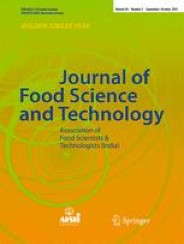
Variations in nutritional quality and fatty acids composition of sardine (Sardina pilchardus) during canning process in grape seed and olive oils
2022 Aug 31 Journal of Food Science and Technology Bouriga N, Rjiba Bahri W, Mili S, Massoudi S, Quignard JP, Trabelsi M
Experimental Study Grape Seed Oil SardineUsing grape seed oil in the sardine canning process enhances the lipid nutritional quality and increases the fat, protein, and ash contents.
Research insights are moderated by the Research Hub team and offer an at-a-glance overview of interesting research findings.

2022 Journal of Food Science and Technology
Using grape seed oil in the sardine canning process enhances the lipid nutritional quality and increases the fat, protein, and ash contents.
Experimental Study Grape Seed Oil Sardine
Variations in nutritional quality and fatty acids composition of sardine (Sardina pilchardus) during canning process in grape seed and olive oils
Bouriga N, Rjiba Bahri W, Mili S, Massoudi S, Quignard JP, Trabelsi M

2022 Nutrients
Extra virgin olive oil (EVOO) has beneficial health properties and can promote cardiovascular health, lipoprotein metabolism, and diabetes management in clinical nutrition.
Review Article Cardiovascular Disease Type 2 Diabetes
Therapeutic Properties and Use of Extra Virgin Olive Oil in Clinical Nutrition: A Narrative Review and Literature Update
Jiménez-Sánchez A, Martínez-Ortega AJ, Remón-Ruiz PJ, Piñar-Gutiérrez A, Pereira-Cunill JL, García-Luna PP

2021 Nutrients
Extra virgin olive oil high in minor polar compounds significantly improves kidney function, reduces oxidative stress, inflammation, and ultimately benefits the body composition.
Experimental Study Chronic Kidney Disease
Usefulness of Extra Virgin Olive Oil Minor Polar Compounds in the Management of Chronic Kidney Disease Patients
Noce A, Marrone G, Urciuoli S, Di Daniele F, Di Lauro M, Pietroboni Zaitseva A, et al.

2021 Nutrients
Olive oil and leaf extract derivatives have been demonstrated to stimulate thyroid function in animal studies.
Systematic Review Hypothyroidism
Thyroid-Modulating Activities of Olive and Its Polyphenols: A Systematic Review
Pang KL, Lumintang JN, Chin KY

2020 Journal of Alzheimer's Disease
High phenolic early harvest extra virgin olive oil shows notable improvement in cognitive function compared to a moderate phenolic version and the Mediterranean diet alone.
Clinical Study Alzheimer's Disease Cognitive Function Extra Virgin Olive Oil
A Randomized Clinical Trial of Greek High Phenolic Early Harvest Extra Virgin Olive Oil in Mild Cognitive Impairment: The MICOIL Pilot Study
Tsolaki M, Lazarou E, Kozori M, Petridou N, Tabakis I, Lazarou I, et al.
Review Articles
Review articles summarise and critically evaluate the current state of research on a specific topic or field by synthesising multiple primary research studies.

Effects of olive oil on hepatic steatosis and liver enzymes: A systematic review
2023 Oct Journal of Functional Foods Ma Y, Ding X, Gu J, Zhou S, Jiang Y
The systematic review concludes that olive oil, used for eating or cooking in randomized controlled trials, demonstrated significant reductions in hepatic steatosis grading through ultrasound and decreases in aspartate transaminase and alanine transaminase levels, suggesting promise in ameliorating hepatic steatosis. However, further investigations are needed to explore the potential effects of different olive oil types or olive polyphenols on chronic liver ailments.
Systematic Review Randomised Controlled Trial Obesity Liver Enzymes Olive Oil Fatty Liver Disease Type 2 Diabetes
Phytochemicals and Biological Activities of Burdock ( Arctium lappa L.) Extracts: A Review
2022 Nov Chemistry & Biodiversity de Souza ARC, de Oliveira TL, Fontana PD, Carneiro MC, Corazza ML, de Messias Reason IJ, et al.
Studies have demonstrated that A. lappa extracts have antioxidant, antimicrobial, antitumor, antidiabetic, anti-inflammatory, and have complement system modulation effects. Secondary metabolites, such as phenolic compounds and terpenes, were identified as responsible for these biological activities. The relevant antitumor and anti-inflammatory effects of lignans (arctigenin, arctiin, lappaol) and sesquiterpene onopordopicrin were also highlighted in this review due to their significant therapeutic potential in the treatment of inflammatory disorders and cancer.
Review Article
Extra Virgin Olive Oil (EVOO), a Mediterranean Diet Component, in the Management of Muscle Mass and Function Preservation
2022 Aug 30 Nutrients Salucci S, Bartoletti-Stella A, Bavelloni A, Aramini B, Blalock WL, Fabbri F, et al.
The review suggests that due to its anti-inflammatory and antioxidative properties, EVOO supplementation has the potential to delay/prevent the loss of muscle mass and function associated with sarcopenia in aging individuals, emphasizing the need for further research to assess its effectiveness in dietary supplementation.
Theoretical Article Review Article Muscle Mass
The clinical impact of an extra virgin olive oil enriched mediterranean diet on metabolic syndrome: Lights and shadows of a nutraceutical approach
2022 Aug 04 Frontiers in Nutrition Seidita A, Soresi M, Giannitrapani L, Di Stefano V, Citarrella R, Mirarchi L, et al.
The study concludes that the Mediterranean diet (MD) enriched with extra virgin olive oil (EVOO) offers potential health benefits, including antioxidant, anti-inflammatory, insulin-sensitizing, cardioprotective, antiatherogenic, neuroprotective, immunomodulatory, and anticancer activities. However, the authors emphasize the need for further research to fully understand the clinical efficacy and the underlying biochemical and molecular mechanisms of EVOO in treating metabolic syndrome and its associated complications.
Review Article Metabolic Syndrome Extra Virgin Olive Oil
Therapeutic Properties and Use of Extra Virgin Olive Oil in Clinical Nutrition: A Narrative Review and Literature Update
2022 Mar 31 Nutrients Jiménez-Sánchez A, Martínez-Ortega AJ, Remón-Ruiz PJ, Piñar-Gutiérrez A, Pereira-Cunill JL, García-Luna PP
Review Article Type 2 Diabetes Cardiovascular DiseaseExtra virgin olive oil (EVOO) has beneficial health properties and can promote cardiovascular health, lipoprotein metabolism, and diabetes management in clinical nutrition.
Clinical Trials
Clinical trials are research studies that involve people and are conducted to evaluate the safety and efficacy of new treatments or interventions, such as drugs, medical devices, or behavioural therapies.

Effects of olive oil on hepatic steatosis and liver enzymes: A systematic review
2023 Oct Journal of Functional Foods Ma Y, Ding X, Gu J, Zhou S, Jiang Y
The systematic review concludes that olive oil, used for eating or cooking in randomized controlled trials, demonstrated significant reductions in hepatic steatosis grading through ultrasound and decreases in aspartate transaminase and alanine transaminase levels, suggesting promise in ameliorating hepatic steatosis. However, further investigations are needed to explore the potential effects of different olive oil types or olive polyphenols on chronic liver ailments.
Systematic Review Randomised Controlled Trial Obesity Liver Enzymes Olive Oil Fatty Liver Disease Type 2 Diabetes
A Randomized Clinical Trial of Greek High Phenolic Early Harvest Extra Virgin Olive Oil in Mild Cognitive Impairment: The MICOIL Pilot Study
2020 Nov 10 Journal of Alzheimer's Disease Tsolaki M, Lazarou E, Kozori M, Petridou N, Tabakis I, Lazarou I, et al.
Clinical Study Randomised Controlled Trial Extra Virgin Olive Oil Alzheimer's Disease Cognitive FunctionHigh phenolic early harvest extra virgin olive oil shows notable improvement in cognitive function compared to a moderate phenolic version and the Mediterranean diet alone.
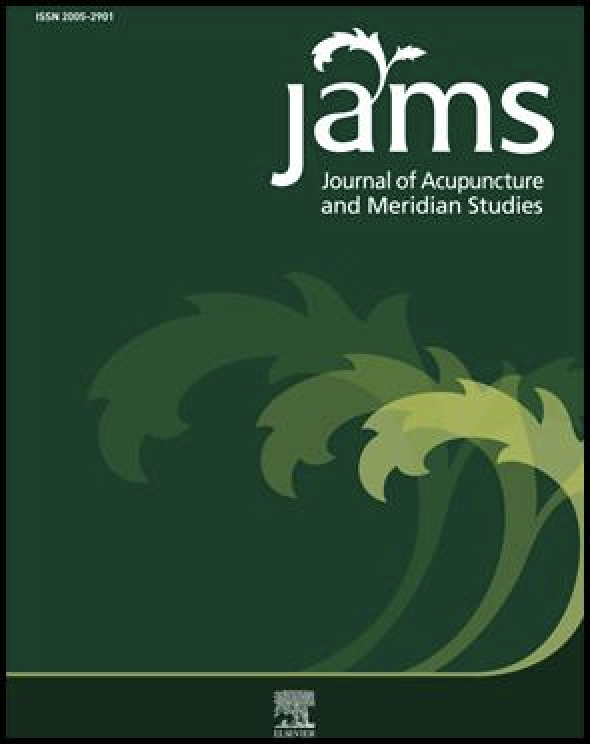
Effectiveness of Manual and Electrical Acupuncture for Chronic Non-specific Low Back Pain: A Randomized Controlled Trial
2020 Jun Journal of Acupuncture and Meridian Studies Josielli Comachio, Carla C. Oliveira, Ilton F.R. Silva, Mauricio O. Magalhães, Amélia P. Marques
The study provides evidence that electroacupuncture is not superior to manual acupuncture treatment. Both therapies had similar efficacy in reducing pain and disability for chronic nonspecific low back pain.
Randomised Controlled Trial Low Back Pain Chronic Pain
The effects of extra virgin olive oil and canola oil on inflammatory markers and gastrointestinal symptoms in patients with ulcerative colitis
2020 Jan 03 European Journal of Clinical Nutrition Morvaridi M, Jafarirad S, Seyedian SS, Alavinejad P, Cheraghian B
Clinical Study Randomised Controlled Trial Ulcerative Colitis Extra Virgin Olive OilExtra virgin olive oil (EVOO) intake can reduce inflammatory markers and improve gastrointestinal symptoms in patients with Ulcerative Colitis.
Study Protocols
Published study protocols are detailed plans that outline the objectives, methodology, statistical analyses, and organisation of a research study that have been made publicly available for others to review and use as a reference.

Acupuncture in Women with Human Polycystic Ovary/Ovarian Syndrome: Protocol for a Randomized Controlled Trial
2022 Oct 11 Healthcare de Oliveira NM, Machado J, Huang Z, Criado MB
We expect to provide evidence of high methodological quality related to the effects and safety of an acupuncture protocol based on the perspective of a TCM diagnostic.
Study Protocol
Efficacy and safety of Cortex Eucommiae (Eucommia ulmoides Oliver) extract in subjects with mild osteoarthritis
2019 Dec Medicine Ahn HY, Cho JH, Nam D, Kim EJ, Ha IH
This clinical trial is expected to provide evidence of the efficacy and safety of Cortex Eucommiae (CE; Eucommia ulmoides Oliver) extract as a treatment for mild osteoarthritis (OA).
Study Protocol OsteoarthritisPresentation Slides

Experimental Study
Using grape seed oil in the sardine canning process enhances the lipid nutritional quality and increases the fat, protein, and ash contents.
Bouriga N, Rjiba Bahri W, Mili S, Massoudi S, Quignard JP, Trabelsi M

Review Article
Extra virgin olive oil (EVOO) has beneficial health properties and can promote cardiovascular health, lipoprotein metabolism, and diabetes management in clinical nutrition.
Jiménez-Sánchez A, Martínez-Ortega AJ, Remón-Ruiz PJ, Piñar-Gutiérrez A, Pereira-Cunill JL, García-Luna PP

Experimental Study
Extra virgin olive oil high in minor polar compounds significantly improves kidney function, reduces oxidative stress, inflammation, and ultimately benefits the body composition.
Noce A, Marrone G, Urciuoli S, Di Daniele F, Di Lauro M, Pietroboni Zaitseva A, Di Daniele N, Romani A

Systematic Review
Olive oil and leaf extract derivatives have been demonstrated to stimulate thyroid function in animal studies.
Pang KL, Lumintang JN, Chin KY

Clinical Study
High phenolic early harvest extra virgin olive oil shows notable improvement in cognitive function compared to a moderate phenolic version and the Mediterranean diet alone.
Tsolaki M, Lazarou E, Kozori M, Petridou N, Tabakis I, Lazarou I, Karakota M, Saoulidis I, Melliou E, Magiatis P

Clinical Study
Extra virgin olive oil (EVOO) intake can reduce inflammatory markers and improve gastrointestinal symptoms in patients with Ulcerative Colitis.
Morvaridi M, Jafarirad S, Seyedian SS, Alavinejad P, Cheraghian B
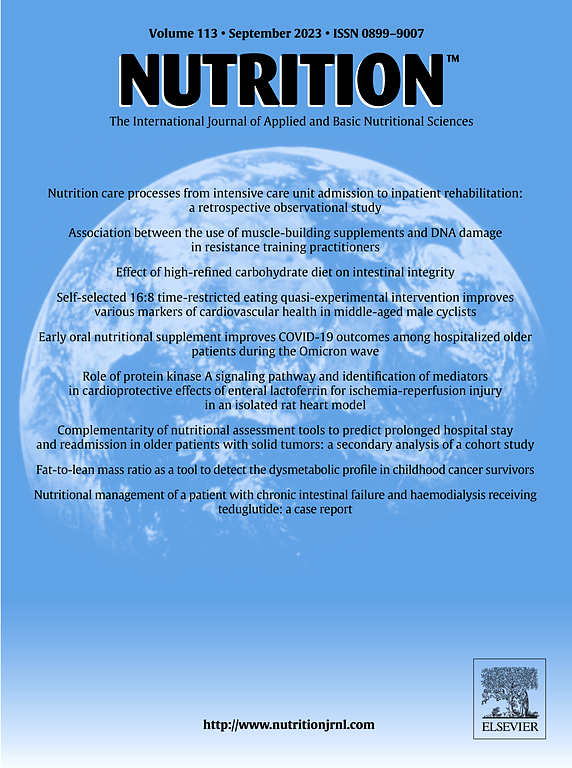
Systematic Review
Regular dietary intake of olive oil reduces the levels of certain inflammation markers, making it a beneficial alternative dietary fat, especially for managing IL-6.
Fernandes J, Fialho M, Santos R, Peixoto-Plácido C, Madeira T, Sousa-Santos N, Virgolino A, Santos O, Vaz Carneiro A

Review Article
The Mediterranean diet, especially the high consumption of extra-virgin olive oil, significantly reduces the risks of vascular diseases and Alzheimer's.
Román GC, Jackson RE, Reis J, Román AN, Toledo JB, Toledo E

Clinical Study
Young adults using low-fat oily dressings and certain cooking oils are linked to higher metabolic risks without direct relation to their consumptions of low fat dairy, meat, or cooking fats.
Sun Y, Magnussen CG, Dwyer T, Oddy WH, Venn AJ, Smith KJ
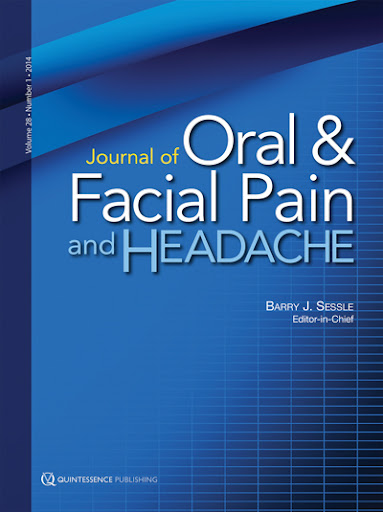
Systematic Review
Acupuncture yielded results similar to those observed in groups treated with occlusal splints for pain in myofascial temporomandibular disorder.
Ana Carla Bezerra De Carvalho Justo Fernandes, DDS, MSc/Dayanne Monielle Duarte Moura, DDS, MSc/Laura Géssica Dantas Da Silva, DDS, MSc/Erika Oliveira De Almeida, DDS, MSc, PhD/Gustavo Augusto Seabra Barbosa, DDS, MSc, PhD

Systematic Review
Of the 7 clinical trials included, five evaluating individuals with hypertension observed a significant reduction in systolic and/or diastolic blood pressure. The two articles that evaluated individuals with dyslipidemia showed improvement in lipid profile.
Carolina Alves Cardoso, Gláucia Maria Moraes de Oliveira, Luciana de Almeida Vittori Gouveia, Annie Seixas Bello Moreira & Glorimar Rosa
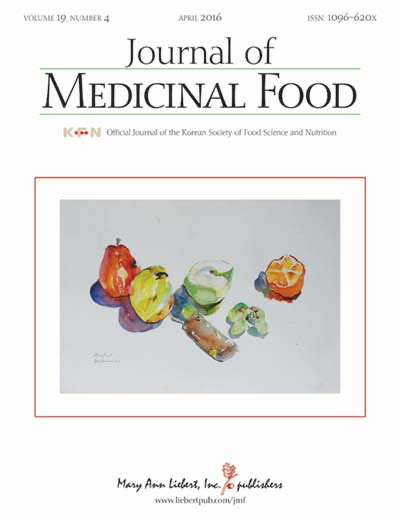
Systematic Review
The studies assessed showed that sesame could have a significant effect on oxidative stress and the antioxidant defense system, being considered a food with an important antioxidant function in the different populations studied.
Gouveia Lde A, Cardoso CA, de Oliveira GM, Rosa G, Moreira AS.
Executive Summary
Write an executive summary in the form of a blog article on the topic of "Research into Chinese medicine treatment for Olive" summarising the research below and using language that can be easily understood by patients and avoiding medical jargon using a professional and caring tone of voice.
Write an executive summary in the form of a blog article on the topic of "Researched Chinese medicine treatments for Olive" summarising the research below in an objective and easy to understand way, and using language that can be easily understood by patients. Group the article into Chinese medicine treatments first, followed by nutrition and other treatments. Avoid using medical jargon and use a professional and caring tone of voice.
Write me a concise but easy to understand executive summary on the topic of "Chinese medicine treatments for Olive" based on the following research that I will give you. Your summary should be 2 paragraphs long in Australian English spelling and include references to the studies.
A Experimental Study published in 2022 in the journal Journal of Food Science and Technology found that Using grape seed oil in the sardine canning process enhances the lipid nutritional quality and increases the fat, protein, and ash contents. The researchers employed grape seed oil (GSO) in the canning process of sardines, comparing its effects on the nutritional quality of the canned fish to that of the traditional olive oil (OO). The assessment focused on the quantities of polyphenols, flavonoids, and non flavonoids present in both the GSO and OO, while also considering the levels of polyunsaturated fatty acids (PUFA) specifically linoleic acid in the GSO. The fat, protein, and ash content in the canned sardines were also tracked over a period of 90 days. In the results discussion, it was observed that GSO contained significantly higher levels of polyphenols, flavonoids, and non flavonoids than OO. Additionally, GSO was rich in PUFA, particularly linoleic acid. Following the canning process, canned sardines preserved using GSO demonstrated a significant increase in protein, fat, and ash content. Notably, the use of both GSO and OO resulted in a decrease in both atherogenic and thrombogenic indices to less than 1, implying improved lipid nutritional quality. Critically, levels of thiobarbituric acid and Total volatile base nitrogen remained below critical limits.
A Review Article published in 2022 in the journal Nutrients found that Extra virgin olive oil (EVOO) has beneficial health properties and can promote cardiovascular health, lipoprotein metabolism, and diabetes management in clinical nutrition. The methodology of this narrative review involved an extensive synthesis and illustration of the various characteristics and clinical applications of EVOO and its components such as oleic acid, hydroxytyrosol, and oleuropein. It looked at their significance in diet therapy, use in oleic acid-based enteral and parenteral nutrition formulations, and oral supplementation formulations. In their discussion of the results, the researchers found diverse health benefits associated with EVOO. Particularly, they highlighted the potential of whole EVOO in diet therapy and its minor components in supplementation to enhance cardiovascular health, control lipoprotein metabolism, and manage diabetes mellitus within a clinical nutrition framework. It was seen as a significant addition to nutritional and dietary strategies, with a potential for therapeutic application in several diseases and clinical demographics.
A Experimental Study published in 2021 in the journal Nutrients found that Extra virgin olive oil high in minor polar compounds significantly improves kidney function, reduces oxidative stress, inflammation, and ultimately benefits the body composition. The research study tested two distinct types of extra virgin olive oils, namely Synergy with a high content and Luxolio with a medium content of minor polar compounds, on 40 patients suffering from kidney disease. The patients were administered a 40 mL dosage per day over nine weeks. Researchers assessed the impacts on renal functionality, oxidative stress, inflammation levels, and body composition, before and after a subsequent two-month wash out period. Additionally, the concentration of minor polar compounds in the oils was determined through high-performance liquid chromatography accompanied by diode-array detection and mass spectrometry (HPLC-DAD-MS). The research showed improvements in kidney function indicators such as estimated glomerular filtration rate, albuminuria, azotemia, and uric acid. Further, the patients' lipid profile also improved, as did their inflammation parameters, erythrocyte sedimentation rate, C-reactive protein, and body composition. More notably, these beneficial effects were stronger and lasted longer in those patients who had been given the Synergy oil, indicating a sustained antioxidant and anti-inflammatory impact from EVOOs with higher concentrations of minor polar compounds.
A Systematic Review published in 2021 in the journal Nutrients found that Olive oil and leaf extract derivatives have been demonstrated to stimulate thyroid function in animal studies. In October 2020, a systematic review of literature was conducted to study the effects of olive oil and leaf extract derivatives on thyroid function. The search for relevant information was done using PubMed, Scopus, and Web of Science databases. Evidence was gathered from cellular, animal, and human studies that reported on the impact of these derivatives on thyroid function. 445 articles were identified but only nine were considered based on inclusion and exclusion criteria. All the chosen articles were animal studies involving the oral administration of olive oil, olive leaf extract, or olive pomace residues. The results consistently indicated that these olive derivatives stimulated thyroid activities in euthyroid or hypothyroid animals. The exact mechanisms by which this occurs remain unknown. From the studies evaluated, olive pomace residue was found unsuitable for health supplementation or pharmaceutical use. Despite encouraging results, there isn't much evidence proving beneficial health effects of olive derivatives in humans, and the therapeutic applications particularly in individuals with hypothyroidism, needs further support through human studies.
A Clinical Study published in 2020 in the journal Journal of Alzheimer's Disease found that High phenolic early harvest extra virgin olive oil shows notable improvement in cognitive function compared to a moderate phenolic version and the Mediterranean diet alone. A randomized prospective study was conducted examining the effects of high phenolic early harvest extra virgin olive oil (HP-EH-EVOO) and moderate phenolic extra virgin olive oil (MP-EVOO) against the Mediterranean Diet (MeDi) in individuals with mild cognitive impairment. Participants were genetically tested for susceptibility to Alzheimer's disease and had their cognitive functions tested at the start and after 12 months. They were then randomly put into one of three groups: those who received HP-EH-EVOO, those who received MP-EVOO, and those who only received instructions on following the MeDi. The results showed that participants who consumed HP-EH-EVOO demonstrated better cognitive performance in almost all areas over the course of the study, compared to those who consumed MP-EVOO and those who followed the MeDi. MP-EVOO consumers also demonstrated noticeable cognitive improvement compared to the MeDi group, who exhibited worse or similar cognitive performance to their baseline in almost all areas. Moreover, participants who consumed either form of olive oil performed better in cognitive tests, regardless of their predisposition to Alzheimer's disease.
A Clinical Study published in 2020 in the journal European Journal of Clinical Nutrition found that Extra virgin olive oil (EVOO) intake can reduce inflammatory markers and improve gastrointestinal symptoms in patients with Ulcerative Colitis. In the methodology of this study, forty patients suffering from Ulcerative Colitis participated in a crossover clinical trial, where the effects of extra virgin olive oil were compared with canola oil as part of their diet. Blood samples were collected before and after a 20-day intervention period, and measures such as disease activity and gastrointestinal symptoms were evaluated using established rating scales. In terms of results, the consumption of EVOO showed a significant decrease in recognized inflammatory markers. Furthermore, symptoms such as bloating, constipation, urgent bowel movements, and incomplete bowel evacuation were reported to have been significantly reduced following the consumption of EVOO. Therefore, this study suggests that extra virgin olive oil can offer significant benefits as a complementary medicine in the treatment of Ulcerative Colitis.
A Systematic Review published in 2020 in the journal Nutrition found that Regular dietary intake of olive oil reduces the levels of certain inflammation markers, making it a beneficial alternative dietary fat, especially for managing IL-6. The methodology of this review involved summarising data from randomized controlled trials to investigate the impact of regular dietary intake of olive oil on three specific inflammatory markers: C-reactive protein, interleukin-6, and tumor necrosis factor-alpha. These studies looked at how regular usage of olive oil as part of the diet can affect these markers and provide benefits to individuals who implement it in their dietary routine. The trials focused primarily on the Mediterranean diet, which is known for its high usage of olive oil as a main fat source. The results indicate that olive oil, when consumed on a consistent basis, can reduce the levels of inflammatory markers. It has been observed to be particularly effective in managing levels of interleukin-6. The results obtained from the review of these trials suggest that olive oil can indeed be a beneficial supplement to diet with potential impacts on managing inflammation and related diseases. They hint at potential effectiveness of olive oil as a nutritious factor in mitigating the adverse impacts of a diet high in unhealthy fats, by providing it as a healthier alternative.
A Review Article published in 2019 in the journal Revue Neurologique found that The Mediterranean diet, especially the high consumption of extra-virgin olive oil, significantly reduces the risks of vascular diseases and Alzheimer's. The research has been based on a plethora of observational epidemiological studies, local population experiences, meta-analyses of epidemiologic data, and experimental studies, all converging to the connection between the Mediterranean diet and a reduced prevalence of different ailments. The study scopes extend over long periods, such as the Italian-American experience from 1935 to 1965, or the Seven Countries Study spanning four decades from 1960 to 2000. Another significant evidence base is the French Three-City Study, which followed participants for ten years from 2000 to 2010. Apart from human trials, the article includes results from experimental animal models, specifically concerning late-onset Alzheimer disease. The findings showcase a consistent trend linking reduction in vascular diseases, obesity, arthritis, cancer, cognitive decline, and specifically Alzheimer's disease with increased adherence to a Mediterranean dietary pattern, particularly high intake of extra-virgin olive oil. Certain dietary components such as fruits, seeds, legumes, and vegetables contribute to the benefits. However, olive oil stands out as the chief dietary fat in Mediterranean countries. It provides plentiful monounsaturated fatty acids, beneficial polyphenols, and other antioxidants, which play a crucial part in these health benefits. The most striking discovery is extra-virgin olive oil's potential to mitigate the effects of adverse vascular factors, indicating a promising approach to preventing late-onset Alzheimer's disease.
A Clinical Study published in 2018 in the journal Nutrients found that Young adults using low-fat oily dressings and certain cooking oils are linked to higher metabolic risks without direct relation to their consumptions of low fat dairy, meat, or cooking fats. The research engaged 2071 participants aged between 26 to 36 years old to report their dietary behaviors like how often they removed visible fat from meat, their intake of low-fat dairy products, and how frequently they used different cooking fats, from 2004 to 2006. The participants also had their blood pressure, weight, and height measured, while a fasting blood sample was taken to create a continuous metabolic syndrome (cMetSyn) score using sex-specific principal component analysis applied to normalized risk factors. This cMetSyn score is designed to depict higher risks with higher scores. The findings showed that the mean cMetSyn score had positive correlations with those participants who consumed low-fat oily dressings and used canola or sunflower oil for cooking. Interestingly, the researchers found no significant associations between the cMetSyn score and the behaviors of trimming fat from meat, cooking with olive oil or butter, or taking low-fat dairy products. This indicates that metabolic risk among young adults does not necessarily correlate with compliance to traditional fat-related dietary recommendations.
A Systematic Review published in 2017 in the journal Journal of Oral & Facial Pain and Headache found that Acupuncture yielded results similar to those observed in groups treated with occlusal splints for pain in myofascial temporomandibular disorder. A total of four randomized clinical trials using acupuncture (traditional, trigger point, and laser) for TMD treatment met the eligibility criteria and were included. Although the studies featured small sample sizes and short-term follow-up periods, acupuncture yielded results similar to those observed in groups treated with occlusal splints and were significantly superior than those obtained from placebo acupuncture–treated groups. Despite the weak scientific evidence supporting its efficacy, acupuncture treatment appears to relieve the signs and symptoms of pain in myofascial TMD. More controlled and randomized clinical trials with larger sample sizes are needed in this field of research to verify these initial findings.
A Systematic Review published in 2017 in the journal Critical Reviews in Food Science and Nutrition found that Of the 7 clinical trials included, five evaluating individuals with hypertension observed a significant reduction in systolic and/or diastolic blood pressure. The two articles that evaluated individuals with dyslipidemia showed improvement in lipid profile. The mechanisms of action are still being studied. Regarding the bias risk analysis, clinical trials included showed few descriptions of the methods applied. There are few studies about sesame ingestion, and it was observed high risk for bias in the selected studies. More standardized methods with attention to the design of studies are needed to improve the level of the evidence.
A Systematic Review published in 2016 in the journal Journal of Medicinal Food found that The studies assessed showed that sesame could have a significant effect on oxidative stress and the antioxidant defense system, being considered a food with an important antioxidant function in the different populations studied. In conclusion, despite the limitations and biases of this systematic review, the studies assessed showed that sesame could have a significant effect on oxidative stress and the antioxidant defense system, being considered a food with an important antioxidant function in the different populations studied (individuals with dyslipidemia, diabetes, and hypertension), as well as in its different presentations (oil, seed flour, and capsule). However, better-controlled studies still lack to assess the positive effects on different populations. There are few clinical trials assessing the effect of sesame on oxidative stress. The studies included in this review, mainly those with sesame oil and black sesame meal capsules administered to hypertensive and prehypertensive populations, respectively, showed an increase in enzymatic (SOD, GSH, GPx, and CAT) and nonenzymatic antioxidants (vitamin C, vitamin E, and beta-carotene), as well as a reduction in oxidative stress markers (TBARS and MDA). Although several studies have reported that the exact mechanisms of oxidative stress reduction remain to be fully explained, this review showed that sesame can have a significant positive impact on the health of different popula- tions.
Moderation Tools
Topic
Sign In
Users not signed in are limited to viewing the 5 most recent items of content.